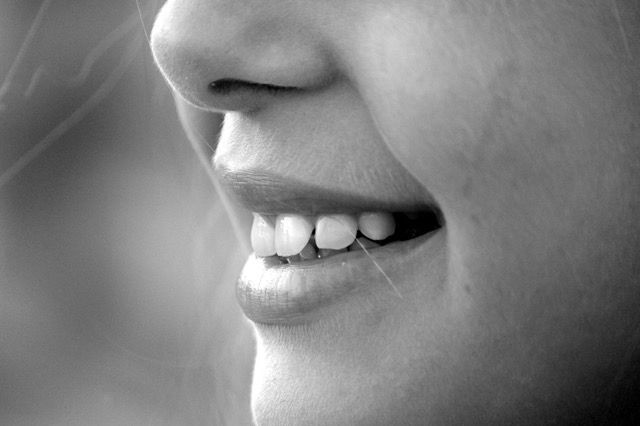Cavities Are Contagious: Kissing And 3 Other Ways Harmful Bacteria Spreads And Causes Tooth Decay

We all know we can catch the common cold or the flu through the spread of germs. Similarly, harmful cavity-causing bacteria can be passed from person to person, just like the flu. Catching a cavity is more common than we think, with infants and children being particularly vulnerable.
So, what happens to our teeth when there's a cavity?
Read: The Balance Of Bacteria In Your Mouth Can Lead To Tooth Decay
Tooth Decay And Cavities
A cavity spotted on our teeth means bacteria in our mouth has converted the sugars that we eat into acid. Streptococcus mutans is considered to be the most cariogenic (cavity causing) group of bacteria, according to Dr. Eugene Gamble, a UK trained dental specialist, Fellow of the Royal College of Surgeons in Ireland, and a member of the Royal College of Surgeons of Edinburgh. This along with lactobacilli will store polysaccharide — a carb whose molecules consist of sugar molecules bonded together — and continue to secrete acid long after the food has been swallowed.
"Microscopically, this dissolves the tooth mineral which eventually gets bigger to become a visual hole or cavity that we can see," Gamble told Medical Daily.
Spreading Cavities
Previous research has found one of the biggest culprits of cavity spread among babies is their caretaker. Researchers concluded mothers with cavities can transmit cavity-producing oral bacteria to their babies when they clean pacifiers by sticking them in their own mouths, or by sharing spoons. Tooth decay can negatively impact a child's quality of life, performance in school, and success in life.
A 2008 study published in the Australian Dental Journal found tooth decay is one of the most infectious oral diseases. Researchers saw 30 percent of three month olds, 60 percent of six month olds, and nearly 80 percent of two year olds were infected with Streptococcus mutans bacteria. This made them more susceptible to developing cavities.
A person's high cavity rate could be attributed to several factors, such as "proper care at home or lack thereof, contact with others that have a high bacterial count and the individual has a suppressed immune system, improper diet introducing a multitude of carbohydrates and sugars which will feed the strep mutans,” Dr. Vladimir Gashinsky, a dental hygienist at the Holistic Dental Center in Millburn, N.J., told Medical Daily.
As an adult, we’re far less susceptible than children to bacteria spread because they haven’t built up immunity yet. However, kissing, sneezing, sharing utenils, and sharing toothbrushes facilitate the spread of cavity-causing bacteria.
Preventing Cavity Spread
Realistically, we can't limit “exposure” to these types of bacteria, but we can create an environment that will limit the number and effects of the bacteria itself.
Read: 6 Surprising Foods And Drinks That Help Prevent Cavities
“Simple habits such as reducing your sugar intake and regular brushing with a fluoridated toothpaste are very effective,” said Gamble.
For parents, the best way to avoid spreading bacteria to children is to avoid kissing your baby on the mouth, or placing any item in your mouth then in the baby's.
Gamble reminds us cavities are not contagious in the same way as other diseases, although it may appear that way when families have the same problems.
"There will be genetic and environmental factors that these groups share which may mimic contagion."
See Also:
Dental Sealants Will Prevent 3.4 Million Cavities For Low-Income Kids



























